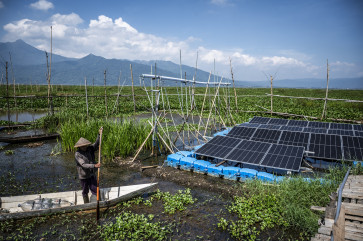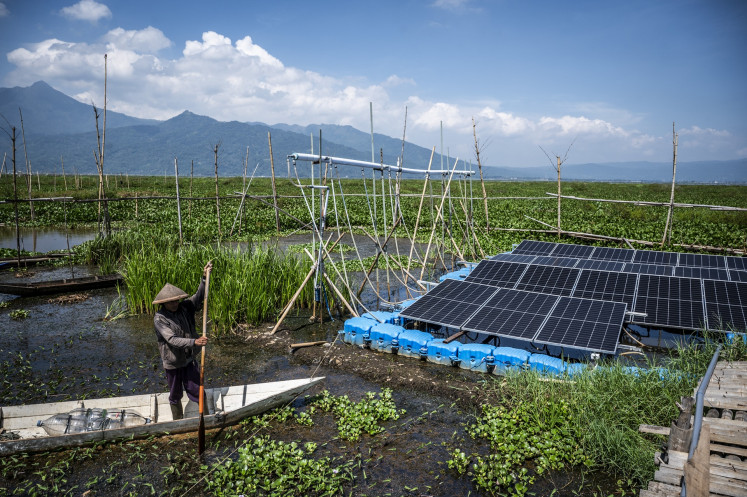Popular Reads
Top Results
Can't find what you're looking for?
View all search resultsPopular Reads
Top Results
Can't find what you're looking for?
View all search resultsRI children suffer from stunted growth
Despite Indonesiaâs achievement of becoming the worldâs10th-largest economy, the country is struggling to provide adequatechildhood nutrition, with the number of children suffering from stunted growthremaining high nationwide
Change text size
Gift Premium Articles
to Anyone
D
espite Indonesia's achievement of becoming the world's10th-largest economy, the country is struggling to provide adequatechildhood nutrition, with the number of children suffering from stunted growthremaining high nationwide.
'One-third of children in Indonesia are suffering from stunted growth,' Iing Mursalin, health and nutrition project specialist at Millennium Challenge Account (MCA) Indonesia, told The Jakarta Post on Friday.
According to UNICEF data in 2013, Indonesia stood in fifth place among countries with the highest numbers of stunted children around the world.
The number of stunted children reached 7.6 million in 2013 globally.
The figure was alarming as it showed that some children in Indonesia suffered chronic malnutrition for long periods of time.
'North Sumatra has one of the highest [...] average rates of stunted children in Indonesia,' he said, citing data compiled by the WHO in 2010.
Meanwhile, he said that Yogyakarta was the province with the lowest prevalence of children suffering stunted growth.
In addition, MCA communications and outreach director Farah Amini said that 30 percent of Indonesia's stunted children came from middle-class families.
'It shows that there are some problems with our lifestyle and parenting styles,' she said.
Iing agreed with Farah, saying that most people in Indonesia prioritized the elderly when it came to food and nutrition, often allowing senior groups to eat the best meals.
'Cultural values are one of the things that disrupt the nutrition absorption of pregnant women and children, especially in poor families,' Iing said.










